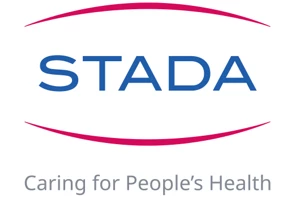STADA Health Report 2019: La mitad de los europeos están listos para el “Dr. Robot” y harían la visita a su médico a través de webcam
- 11/05/2019
- Nota de prensa
- 56 percent of Europeans would undergo surgery with “Dr Robot”
- 54 percent would receive treatment from their GP via webcam
- 80 percent would take a gene test but only one quarter knows what a gene test can detect
- Overall, men are more open to medical trends and new health technologies than women
- 53 percent of Europeans feel optimistic about the future of health
Bad Vilbel (Alemania), 15 de mayo de 2019 – El 56% de los europeos se sometería a una cirugía con el "Dr. Robot" y el 54% haría la visita con su médico de cabecera a través de una webcam. Estos son dos de los resultados más significativos que recoge el estudio STADA Health Report 2019. Un estudio que bajo la consigna del “Futuro de la Salud” ha incluido 18.000 encuestados de nueve países europeos. El informe también muestra que 4 de cada 5 europeos se someterían a una prueba genética y el 38% estaría dispuesto a implantarse un biosensor. Observando los resultados en detalle, sale a la luz una interesante variabilidad entre los distintos países. ¿Quién está preparado para el futuro de la salud?
“STADA se complace de compartir los resultados de nuestro quinto informe anual de salud. Las ideas nos ayudarán a comprender mucho mejor las tendencias y percepciones para atender a pacientes y profesionales de la salud aún más fuerte en el futuro. Esto reforzará la posición de STADA como un aliado de referencia en el sector europeo del cuidado de la salud", señala Peter Goldschmidt, CEO de STADA Arzneimittel AG.
Alrededor de 2.000 personas de Bélgica, Francia, Alemania, Italia, Polonia, Rusia, Serbia, España y el Reino Unido de edades comprendidas entre los 18 y los 99 años aportaron su opinión sobre el futuro de algunos temas relacionados con la salud. La encuesta fue realizada por el instituto de investigación de mercado Kantar Health para STADA Arzneimittel AG. Los resultados han sido presentados hoy en una conferencia de prensa internacional en Berlín.
“El Dr. Robot le verá ahora”
El estudio muestra un resultado central: la cirugía asistida por robots ya no es estrictamente una visión del futuro ya que dependemos de ellos para una serie de procedimientos. Una observación interesante para empezar: El 56 por ciento de los europeos tendría un robot operándolos. La población masculina está más abierta a la cirugía robótica que las mujeres. Al 63 por ciento de los hombres no les importaría ver al "Dr. Robot" en comparación con solo el 49 por ciento de las mujeres. Las personas mayores de 50 años (61 por ciento) están más abiertas a la cirugía robótica que las personas menores de 35 años (50 por ciento). En comparación con Italia, donde el 66 por ciento iría bajo el cuchillo del robot, la población serbia es más cautelosa con estos avances quirúrgicos innovadores (45 por ciento).
One central result of the study: Robot-assisted surgery is no longer strictly a vision of the future, as we already rely on them for a number of procedures. One interesting observation to begin with:
56 percent of Europeans would have a robot operate on them. The male population is more open to robotic surgery than women. 63 percent of men would not mind seeing “Dr Robot” in comparison to only 49 percent of women. People above the age of 50 (61 percent) are more open to robotic surgery than people under the age of 35 (50 percent). In comparison to Italy, where 66 percent would go under the robot’s knife, the Serbian population is more cautious about such innovative surgical advancements (45 percent).
When it comes to a face-to-face consultation, time efficiency and convenience turn out to be vitally important for Russians: almost 70 percent of them would receive treatment from their GP via webcam. They thusly surpass the European average, which lies at an approval rate of 54 percent for digital surgery hours. Belgians are more sceptical (37 percent): most of them prefer real-life interaction with their doctor.
Genetic testing surprisingly popular – despite gaps in knowledge
Needless to say, the future of medicine bears great opportunity for improvement. 53 percent of respondents are convinced that thanks to scientific progress, we will be able to cure a number of diseases in the future. And most Europeans are eager to do their part in embracing modern forms of medical treatment: 81 percent would comply should their doctor suggest they take a gene test. With 88 percent, the Polish are among the most likely to consent to such a procedure. At the same time, only 24 percent of Europeans know what a gene test can detect, and are aware that a person’s exact life expectancy is not among those things. The most significant knowledge gaps regarding genetic testing were found in Italy, where only 17 percent of the people surveyed gave correct answers – meanwhile, the British turned out to be among the most savvy (28 percent) about this particular topic.
Permanent health monitoring by means of a biosensor implant seems to get under the Europeans’ skin: only 38 percent would be willing to get such an implant. Germans are among the most suspicious: 71 percent of them draw the line at implants. Across the continent, men are generally less apprehensive about invasive measuring tools than women.
A glimpse into the future
Good news: 53 percent of Europeans feel optimistic about the future of health. The forerunner of enthusiasm is Spain, where 62 percent of respondents expressed they have no reason to worry about health in the future. Their immediate neighbours to the North, the French, end up on the opposite end of the spectrum, with only 44 percent. Reasons for scepticism include the fear of environmental and social issues (22 percent), as well as a decline in the quality of medical care due to digitalization (3 percent).
Aside from occasional spells of apprehension towards more invasive and digital advancements in medicine, Europeans generally keep an open mind on health-related matters of the future. The most important task for the medical sector will be to address the concerns that remain, so that the whole of Europe can look to the future of health with confidence. Trendscout Sven Gábor Jánszky says humanity has every reason to feel optimistic: “The future of health is data driven. That’s not a secret since real-time data measurement is already available and used for a variety of causes all around the world. Optimizing medicine and the human body by using technology is the most promising business in terms of human impact and business profit. Exactly this is to be predicted by 2025.”
For further information on STADA Health Report please visit www.yourhealth.stada.
About STADA Arzneimittel AG
STADA Arzneimittel AG is a publicly-listed company with headquarters in Bad Vilbel, Germany. The company focuses on a two pillar strategy consisting of generics, including specialty pharmaceuticals and non-prescription Consumer Health products. Worldwide, STADA Arzneimittel AG sells its products in approximately 130 countries. In financial year 2018, STADA achieved adjusted Group sales of EUR 2,330.8 million and adjusted earnings before interest, taxes, depreciation and amortization (EBITDA) of EUR 503.5 million. As of December 31, 2018, STADA employed 10,416 people worldwide.
Additional information for journalists:
STADA Arzneimittel AG / Media Relations / Stadastrasse 2–18 / 61118 Bad Vilbel – Germany /
Phone: +49 (0) 6101 603-165 / Fax: +49 (0) 6101 603-215 / E-mail: [email protected]
Or visit us on the Internet at www.stada.com/press
Additional information for capital market participants:
STADA Arzneimittel AG / Investor & Creditor Relations / Stadastrasse 2–18 / 61118 Bad Vilbel – Germany /
Phone: +49 (0) 6101 603-4689 / Fax: +49 (0) 6101 603-215 / E-mail: [email protected]
Or visit us on the Internet at www.stada.com/investor-relations

